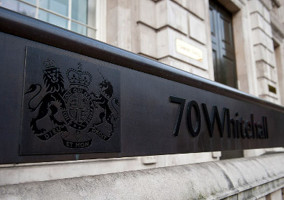Simon Steeden, charity partner at Bates Wells Braithwaite, reflects on the government's announcement that it has no plans to amend the Lobbying Act.
The Cabinet Office announcement last week that there are no plans to amend the Lobbying Act has been greeted with dismay from charity leaders. Meanwhile, assurances offered this week by Tracey Crouch that she will work with charities to make sure they fully understand the rules will provide cold comfort.
Many of the sector’s most vocal critics of these onerous rules have been intimately involved in efforts to comply with them ever since their expansion in 2014, and are likely to understand the difficulties associated with them better than the new minister.
So, does this mean that the sector has hit the end of the road in its efforts to persuade the government to repeal or amend the Lobbying Act?
It certainly seems that the prospects of persuading the government to engage in wholesale amendment this side of a Brexit settlement (or crash landing) have become vanishingly small. Despite the rules being criticised by UN special rapporteur Maina Kiaiby in June as having had “a chilling effect on the work of charities during election periods”, the government is clearly disinclined to find time in a Brexit-dominated agenda for substantial reforms such as the cohesive package recommended by Lord Hodgson and described as “eminently sensible” by the House of Lords Select Committee on Charities.
Scope for piecemeal reform?
If so, could there still be scope for more piecemeal reform, focusing on some of the most problematic aspects of the rules? Certainly, reducing the year-long regulated period to a more reasonable duration (the four months recommended by Lord Hodgson, or even the six months put forward by Lord Harries’ Commission on Civil Society and Democratic Engagement) could make a big difference, as could any serious attempt to reduce the extent to which joint campaigning rules have discouraged charities from co-operating in pursuit of common concerns in the run-up to an election.
A shift towards regulating spending only where it is intended to influence election outcomes could give organisations greater confidence about whether their activities are covered by the rules, whilst also bringing consistency between the intention tests applying respectively to local and national election and referendum campaigning.
But even such a pick and mix approach to reform would be likely to require primary legislation, and the government’s flat refusal to contemplate any reform suggests that finding the requisite parliamentary time is likely to be an uphill struggle.
Even before Brexit came to dominate the Parliamentary agenda, the government had been studiously silent after initially welcome Lord Hodgson’s report. Cynics might suggest that this was indicative of unwillingness to dedicate time and energy to developing a regulatory regime which (in the words of Lord Hodgson) “is comprehensible and proportionate and does not discourage third parties from campaigning”, with campaigning by charities and other civil society organisations often seen by governments of all stripes as a thorn in their side.
Alternatative approaches
In this context, it may be time to explore alternative approaches, such as a challenge to the legality of the rules themselves. The most obvious opportunities could include challenging the consistency of a retrospective year-long regulated period with legal principles preventing criminal liability from actions which did not constitute criminal offences at the time they were committed, or challenging the consistency of the regime with freedom of expression more generally.
Such a challenge could potentially involve seeking a declaration of the Lobbying Act’s incompatibility with the European Convention on Human Rights, or judicial review of a public body’s decision in relation to the rules.
A judicial review would need to be brought as soon as possible after grounds arise (and in any event within three months), meaning that campaigning organisations will need to be quick to identify decisions which might be open to challenge. For the most fleet of foot, the decision of the Cabinet Office to rule out any attempt to implement Lord Hodgson’s recommendations, without any justification and despite them being the product of a review expressly required by Parliament through inclusion in the Lobbying Act, could potentially form the basis of that challenge.
Failing that, it may be possible for an organisation sanctioned by the Electoral Commission for a breach of the Act to challenge that decision on human rights law grounds, particularly where the more obviously vulnerable aspects of the Act (such as the retrospective regulated period) are in play.
Complying with the current regime
Of course, the vast majority of organisations will be most interested in how to avoid Electoral Commission sanction and will be doing their utmost to comply with the current regime, despite the difficulty and uncertainty of complying with rules which are burdensome, ambiguous and oppressive.
The difficulties associated with compliance have been amplified in the aftermath of the snap election, as the predicament of the current minority government will make it much harder for organisations to argue that any future snap election was not anticipated. As a result, it may be more difficult to justify general assumptions that spending before the election was called should not reasonably be regarded as intended to influence the election outcome.
Different organisations (with different risk appetites) will take different approaches in grappling with this dilemma. Some may choose to maintain streamlined compliance systems on an ongoing basis. Others will choose to engage with these issues only when the next election is called, such as because they are willing to register with the Electoral Commission if required to do so, and are confident that their regulated spending will never exceed an overall spending threshold.
In any event, it is worth keeping the most likely flashpoints for regulated spending in mind, with any local, devolved assembly and by-elections which happen to fall within a retrospective one-year regulated period most likely to result in regulated spending which later becomes attributable to a general election campaign.
Those flashpoints are also likely to provide the most fertile ground for a challenge to the legality of the rules themselves, if that challenge does not come even sooner. The government’s flat refusal to engage with the recommendations of a review it commissioned from Lord Hodgson to comply with the will of Parliament, as expressed in the Lobbying Act itself, might yet pave the way for an earlier test. .
Simon Steeden is a charity partner at Bates Wells Braithwaite and provided legal advice to Lord Hodgson’s review of non-party campaigning rules
Related articles












